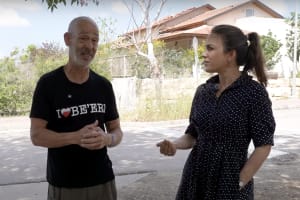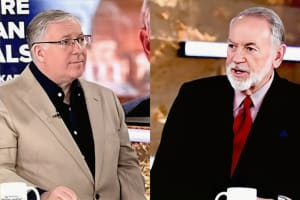Russia cautiously welcomes Netanyahu’s election victory
During past terms Netanyahu pragmatically developed close relations with the Putin-led Russian government

Dmitry Peskov, spokesman for Russian President Vladimir Putin, expressed cautious optimism about Benjamin Netanyahu likely returning to the Israeli Prime Minister’s Office in Jerusalem.
The senior Russian official said it was too early, however, to assess bilateral Russian-Israeli relations, allowing for the complex process of forming a new government in Jerusalem.
“It is still too early. The process of forming the coalition will require time and will not be easy,” Peskov said in an interview with the state-owned TASS Russian News Agency.
Peskov stressed the importance of an Israeli government that is positively disposed towards Russia and bilateral cooperation, and emphasized that “we definitely value constructive relations with our Israeli partners.”
“It is certainly important for us to see people at the helm of Israel and the government, who share a common approach toward further developing bilateral relations,” the spokesman said.
As Israel’s longest-serving prime minister, Netanyahu developed close relations with Putin during his previous 12 years in power. In fact, Netanyahu met with Putin more times than any other democratically elected leader in the West.
While much of the Western world treated Putin as a foe, Netanyahu pragmatically developed close relations with the Putin-led Russian government.
In 2016, Yossi Mekelberg, a Middle East expert at Chatham House in London, concluded that Netanyahu’s frosty relations with U.S. President Barack Obama, and Israel’s tensions with the European Union, facilitated the strong ties between Moscow and Jerusalem during Netanyahu’s tenure.
Tensions between Netanyahu and Obama grew over the controversial nuclear agreement the former U.S. president forged with Iran, which Netanyahu vehemently opposed.
“The higher the tension with the U.S. and Europe, the more he’ll seek business opportunities with Russia, India and China,” Mekelberg said.
Russia’s entry into the Syrian civil war in 2015 was a second crucial factor prompting Netanyahu to prioritize his relations with Putin.
Unlike most Western democracies, Netanyahu’s Israel needed strong working relations with Russia, with the latter’s military forces in Syria, adjacent to Israel.
As the Israel Air Force conducted military operations against Iranian targets in Syria that were often adjacent to Russian forces, Netanyahu and Putin established a de-escalation mechanism to prevent accidental confrontations between Russian and Israeli pilots in the crowded Syrian skies.
In his new memoir, “Bibi My life,” Netanyahu recalled believing the Syria de-escalation mechanism with Moscow was so important that he made sure that Russian speakers in the Israeli military spoke in Russian directly with their counterparts in Moscow.
Russia’s decision to invade Ukraine in late February marked the beginning of difficult relations between Russia and Israel. Initially, former Israeli Prime Minister Naftali Bennett maintained a neutral position in the conflict; however, Bennett’s political partner Yair Lapid joined the West’s condemnation of the Russian invasion.
“This is a serious violation of the international order; Israel condemns the attack,” Lapid said, finally voicing Israel’s stance on the war.
When Lapid succeeded Bennett as Israel’s premier in July, he became increasingly vocal in his criticism of the Russian war against Ukraine. Moscow responded with increasingly hostile statements against the Lapid-led government.
As Iran supplied drones to the Russian forces, some Israeli politicians supported supplying Israeli weapons to Ukraine. In October, former Russian President Dmitry Medvedev warned Jerusalem that a delivery of Israeli weapons to Ukraine would destroy Russian-Israeli ties.
“It looks like Israel is going to provide arms to the regime in Kyiv,” said Medvedev, currently serving as deputy chairman of Moscow’s national security council.
“A very reckless move. It will destroy government relations between our countries,” he said.

The All Israel News Staff is a team of journalists in Israel.













